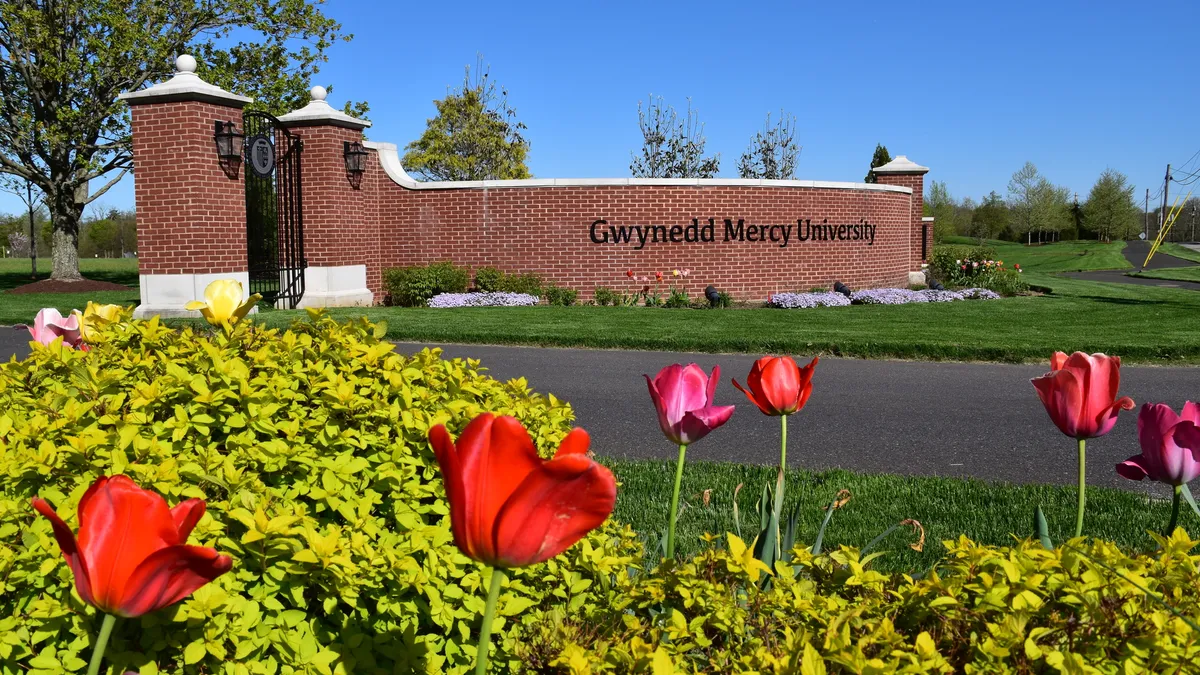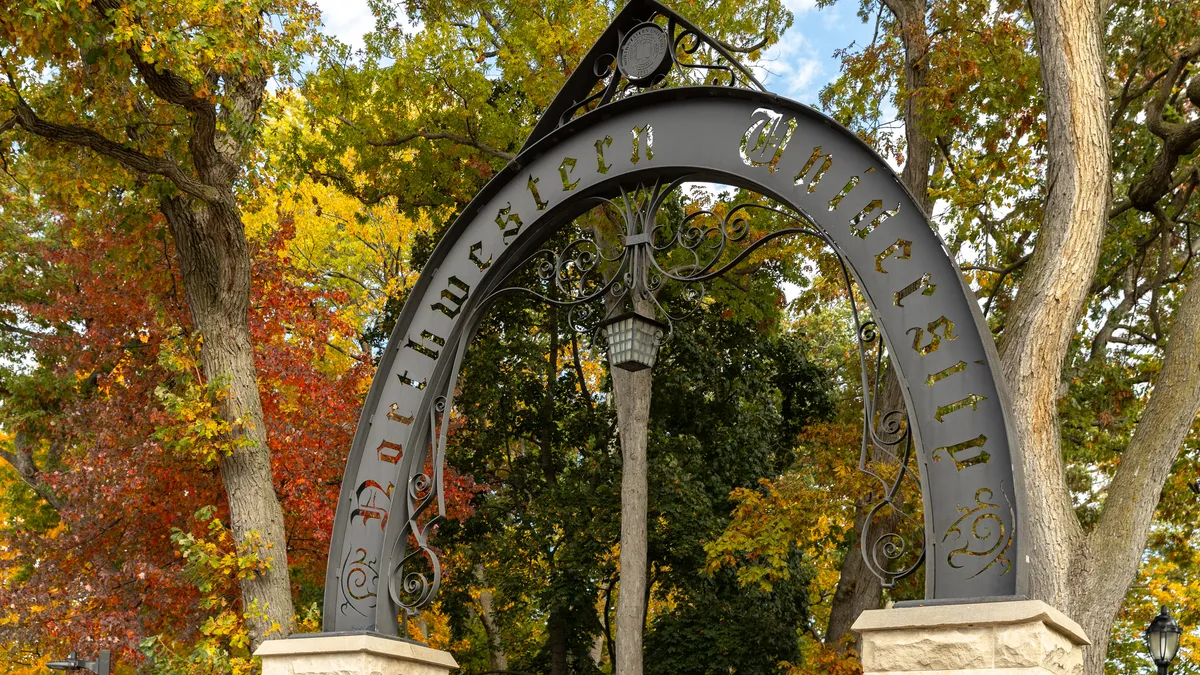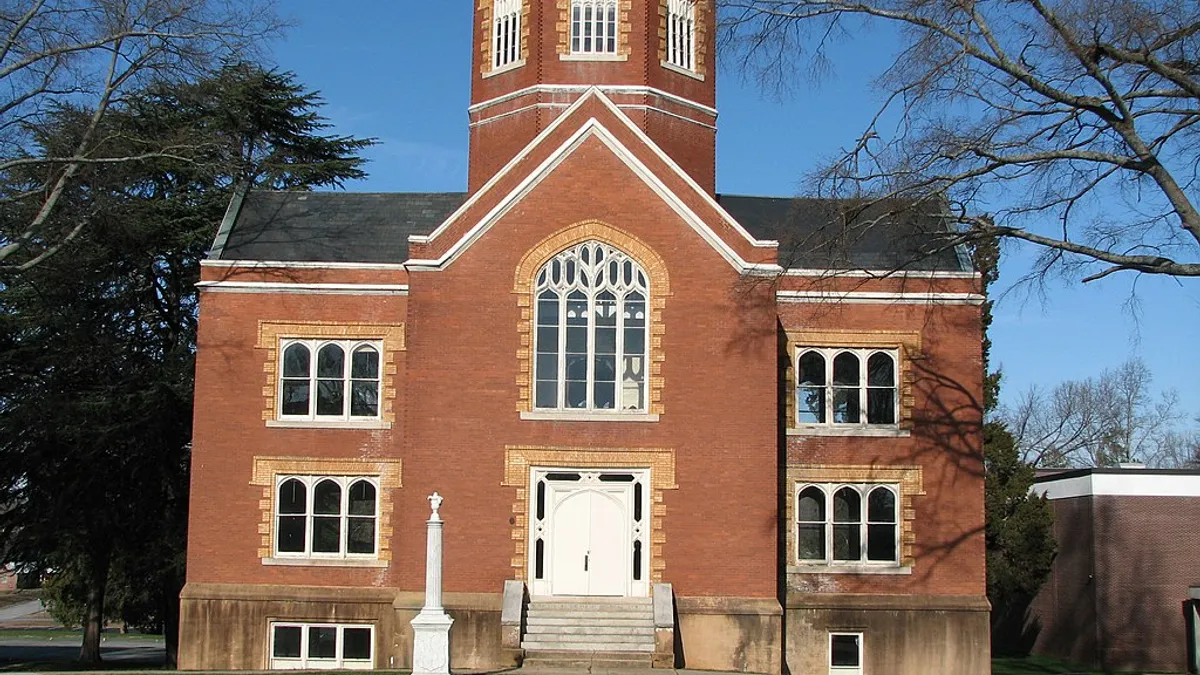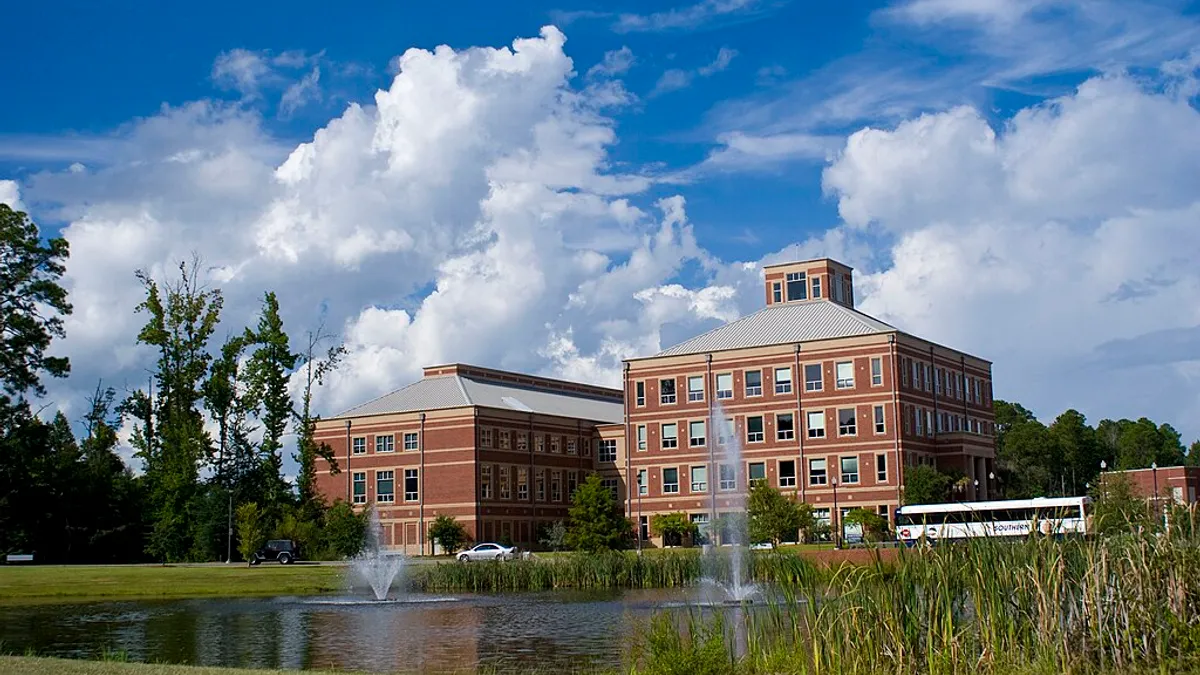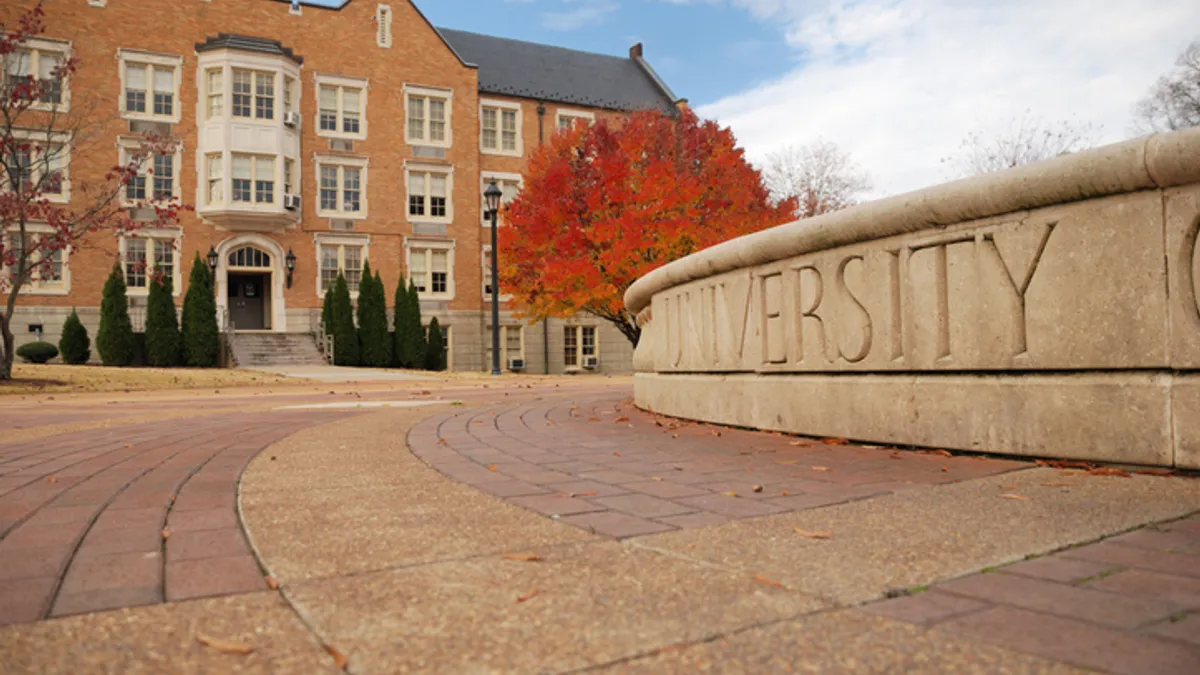In March, Gwynedd Mercy University announced that it was selling about 150 acres adjacent to its main campus — land that it had owned for only a few years — to a life sciences facilities developer for $31.5 million.
The 2,700-student Catholic university, located just north of Philadelphia, bought the land for $12.1 million in late 2018. At the time, it said it planned to use the extra space to boost its existing programs and launch new ones.
But the real estate pivot doesn't seem to have derailed those plans. Some proceeds from the sale will go toward professional and healthcare education as the university adds new programs and bolsters existing ones, it said. And it received $10 million from the Pennsylvania-based Maguire Foundation to build a healthcare innovation center on its 160-acre main campus, the university announced Wednesday. That center had once been planned for the 154 acres purchased in 2018.
Before news of that donation, Higher Ed Dive spoke with Gwynedd Mercy's president, Deanne D'Emilio, to learn more about the thinking and process behind the university's real estate transactions — and whether other college leaders can learn something from them.
This interview has been edited for clarity and brevity.
HIGHER ED DIVE: How did the deal come together?
DEANNE D'EMILIO: We purchased that property about three years prior, in 2018, and the university intended to use it to create a state-of-the-art teaching and learning facility in a building on the property. At the same time and subsequent to that, we were engaged in many planning processes like facilities master planning, strategic enrollment, and a strategic assessment and alignment process, where we looked at all of our programs. And we started to get a couple of unsolicited offers on the property.
Because of all those planning processes, all those factors, we decided to look at a possible sale. We hired a broker, and the broker then marketed the property and fielded the additional offers.
Universities often have trouble changing plans on a dime. Was that a difficult process?
What's interesting is that we didn't really change the plan. What we did was change how we executed the plan.
The plan all along was to create this new teaching and learning environment on the property. And then we looked at the data from all of our planning processes, we determined that we could do that and execute on the same vision, which is to be a Catholic university leader in professional and healthcare education. We could do it on the main campus, and we could do it, honestly, more efficiently.
How did we do that? I have to say I had a terrifically supportive board. We had a subcommittee of the board. We looked at the data. We did a deep dive with my team on the campus. We communicated internally with the campus community.
So there was a lot of consideration given to what I would call the pivot, the shift in thinking from three years prior.
Real estate deals aren't usually a core function for a small private university. How did you lay the groundwork for the sale?
I would say that first of all, I'm an attorney, and that has always been helpful to me. But I am not a real estate attorney.
You have to have expertise. One of the areas I got it from was a trustee. I had a trustee on my board who has the experience, the real estate development experience, and he was invaluable.
If I didn't have a trustee, I would have hired someone who had that expertise to understand how to work with the brokers and look at the potential buyers. I cannot say how important that was.
And I had excellent legal counsel — both land-use counsel and real estate counsel. So it was a team of people that we put together that was really helpful in that regard, because it's definitely not in my core competency, and it is not what we typically do in the higher ed space.
Have you learned anything that might help other college presidents weighing similar transactions?
In this world of higher ed that we are in, I just think you have to think broadly and expand what might be best for the institution and how you're going to realize your vision.
You've got to stick with the strategic plan and the vision, and if it's not in alignment with those things and your mission, then, you know, just move on from there. If it's in line with that and it can help you realize your mission and your strategic plan, then absolutely you should try to think broadly about that.
Would you warn others about anything?
There really wasn't anything in our transaction. But I think you have to make sure you are communicating with the various constituencies.
So for instance, the land here is in a particular township, and you also have to communicate with the elected officials, because you are a citizen of the township and you want to make sure you are being a good citizen.
I communicated with all those folks, and that's definitely something you need to make sure everybody understands: where you're headed and who you're talking to.
It was totally fine in our transaction. It's just something you don't want to forget about.
What else should we have talked about?
If I was giving advice to other presidents at other universities, I would say first of all there's a lot of shiny things that come along. This is one of those things that you might see here and there. I think, most importantly, it's got to align with your mission, your strategic plan. You've got to have the expertise. You've got to have the board.
For us, it was a wonderful opportunity that is going to give us a lot of flexibility positioning for the future.



